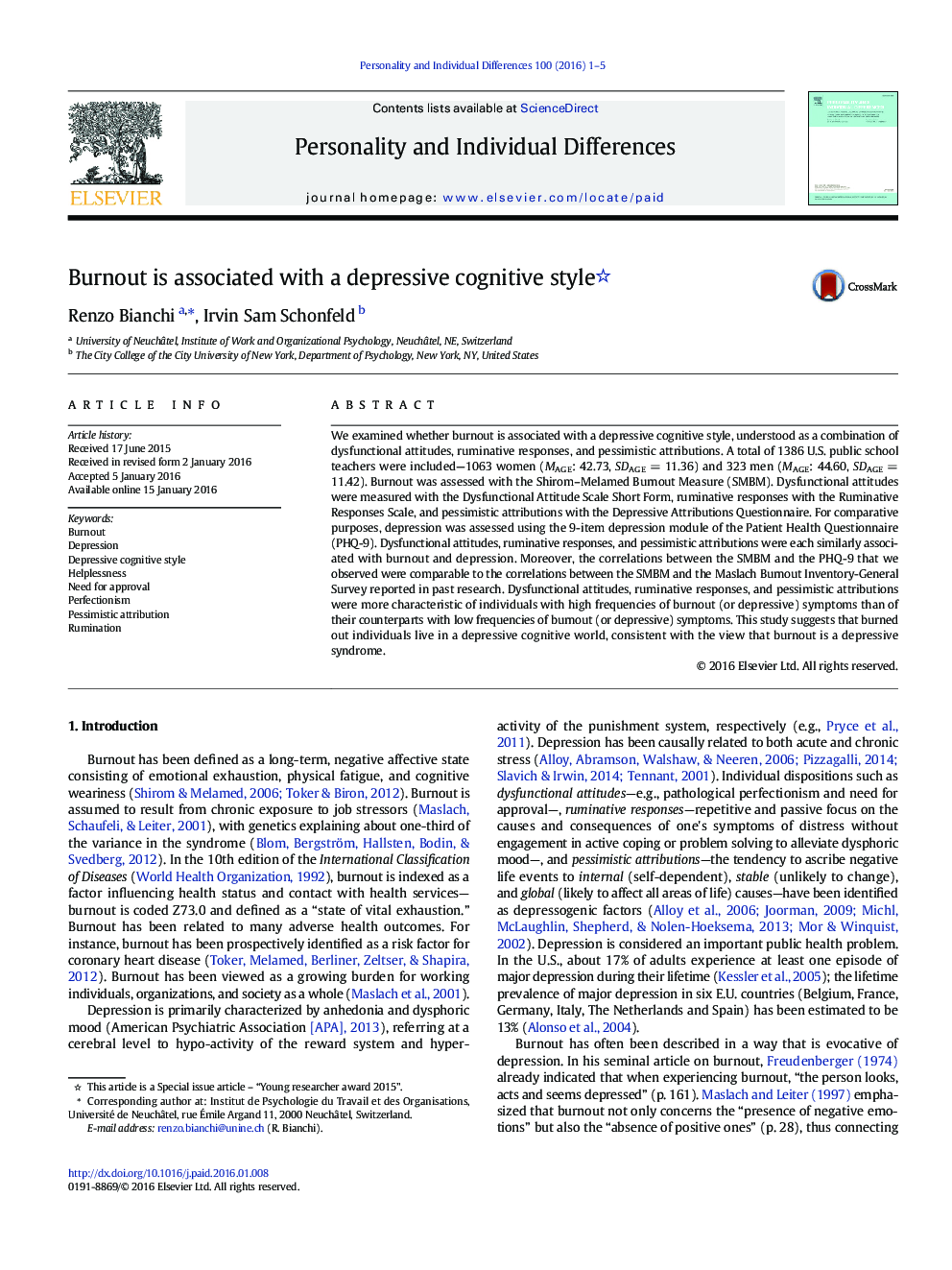| Article ID | Journal | Published Year | Pages | File Type |
|---|---|---|---|---|
| 889616 | Personality and Individual Differences | 2016 | 5 Pages |
•Burnout is associated with a cognitive style that is typical of depression.•Burnout shows problematic discriminant validity with respect to depression.•An integrative approach to burnout (e.g., individual/social) is needed.•This study further questions the relevance of the burnout–depression distinction.
We examined whether burnout is associated with a depressive cognitive style, understood as a combination of dysfunctional attitudes, ruminative responses, and pessimistic attributions. A total of 1386 U.S. public school teachers were included—1063 women (MAGE: 42.73, SDAGE = 11.36) and 323 men (MAGE: 44.60, SDAGE = 11.42). Burnout was assessed with the Shirom–Melamed Burnout Measure (SMBM). Dysfunctional attitudes were measured with the Dysfunctional Attitude Scale Short Form, ruminative responses with the Ruminative Responses Scale, and pessimistic attributions with the Depressive Attributions Questionnaire. For comparative purposes, depression was assessed using the 9-item depression module of the Patient Health Questionnaire (PHQ-9). Dysfunctional attitudes, ruminative responses, and pessimistic attributions were each similarly associated with burnout and depression. Moreover, the correlations between the SMBM and the PHQ-9 that we observed were comparable to the correlations between the SMBM and the Maslach Burnout Inventory-General Survey reported in past research. Dysfunctional attitudes, ruminative responses, and pessimistic attributions were more characteristic of individuals with high frequencies of burnout (or depressive) symptoms than of their counterparts with low frequencies of burnout (or depressive) symptoms. This study suggests that burned out individuals live in a depressive cognitive world, consistent with the view that burnout is a depressive syndrome.
